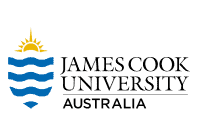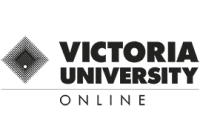Are you considering pursuing an MBA in Australia? It's a decision that can have both its advantages and disadvantages. In this article, we will explore the benefits and drawbacks of an MBA life in Australia and provide valuable insights to help you make an informed decision.
The answer is simple if you're wondering why Australia is a popular destination for MBA students. With its excellent education system and strong economy, Australia provides ample opportunities for professional growth and development.
However, an MBA in Australia can also be expensive, and competition for jobs can be fierce. In this article, we will delve deeper into the advantages and disadvantages of an MBA in Australia and provide a comprehensive guide to help you navigate this exciting but challenging journey.
So, whether you're a seasoned professional looking to upskill or a recent graduate hoping to jumpstart your career, this article is for you. Join us as we explore the world of MBA life in Australia and discover what it takes to succeed in this competitive field.
Quick Links To Online MBA Degree Programs
Southern Cross University
Master of Business Administration (MBA) Online
- 2 years, Part-time
- 8-16 units
- $2,990 per unit, FEE-HELP available
James Cook University
Master of Business Administration Global (MBA Online)
- 24 months, Part-time
- 12 subjects (One subject per each 7-week study period)
- $3,700 per subject, FEE-HELP is available
Victoria University
Master of Business Administration (Online)
- 2 years Part-time (minimum)
- 12 units (7 weeks)
- $3,650 per unit, FEE-HELP available
University Of New South Wales
MBAX (Finance)
- 2-6 years part-time
- Fee: AUD$5,190
- Commencing Terms
Term 1 – February
Term 2 – June
Term 3 – September
What Is an MBA?
An MBA, also known as a Master of Business Administration, is a postgraduate degree that offers advanced instruction in essential aspects of business, including management, marketing, finance, and operations. The Master of Business Administration (MBA) degree is aimed to strengthen students' analytical, problem-solving, and communication abilities in order to better prepare them for leadership roles in business and other types of organisations.
MBA programmes can normally be completed in one to two years, and prospective students may be expected to hold a bachelor's degree in addition to appropriate professional experience. The coursework for a Master of Business Administration (MBA) programme will typically consist of a combination of required courses, such as accounting, economics, and statistics, and elective courses, which give students the opportunity to concentrate their studies on a particular subfield of business.
MBA programmes come in a wide variety of formats, including those that can be completed in full-time, part-time, or online study, as well as executive MBA programmes. Full-time Master of Business Administration (MBA) programmes are intended for students who are able to give their studies their undivided focus.
These programmes may provide students with opportunities for internships or other forms of experiential learning. MBA programmes offered on a part-time basis are intended for working individuals who wish to maintain their current employment while pursuing their degrees. Students in online MBA programmes benefit from flexibility and convenience because they are able to finish their education at their own pace and from any location as long as they have access to the internet. Executive Master of Business Administration (MBA) programmes are intended for seasoned professionals who are already serving in leadership positions and wish to improve their abilities and knowledge.
There are a number of universities and business institutions in Australia that provide MBA programmes that are regarded as among the best in the world. The Australian Graduate School of Management (AGSM), the Melbourne Business School, and the University of Queensland Business School all present students with the opportunity to participate in some of the world's most outstanding educational opportunities. Students are given an education that is both challenging and thorough in order to equip them better to compete successfully in today's global business climate.
In general, having a Master of Business Administration degree is something to consider if you are interested in advancing your career in business or any other profession. An MBA can provide the information and credentials necessary to succeed in today's competitive work market. This is because an MBA programme focuses on the development of practical skills as well as leadership qualities.
Benefits of an MBA in Australia
Students have the opportunity to acquire an education of a very high standard if they choose to pursue an MBA in Australia, which is one of the most significant advantages of doing so. Many of Australia's educational institutions have earned a reputation for providing excellent business programmes regarded as among the best in the world.
Students who pursue a Master of Business Administration in Australia gain access to cutting-edge research and world-class teaching facilities, both of which can assist them in developing the knowledge and abilities necessary to be successful in their jobs.
The culturally diversified student population is another advantage of choosing to study in Australia. It is well recognised that Australia has a diverse range of cultural backgrounds, and the country's student population reflects this. While studying in Australia, you will have the chance to work and network with individuals of various cultural backgrounds and nations. This will help you acquire a more global perspective and improve your ability to communicate effectively across cultural boundaries.
In addition, earning a master's degree in business administration (MBA) in Australia might give students outstanding employment opportunities. MBA graduates are in high demand in several Australian areas, including finance, consulting, and marketing, and many businesses are actively recruiting for them. Employers may place a high value on the skills and information acquired in an MBA degree, which can lead to a greater number of job opportunities being made available.
Students who pursue their education in Australia get the chance to become familiar with the country's distinctive culture and its distinctive way of life. It is a well-known fact that Australia is home to some of the friendliest people on the planet as well as some of the most active cities, making it an ideal location for both living and learning.
In general, getting a master's degree in business administration (MBA) in Australia can be a once-in-a-lifetime opportunity for students because it can provide them with a high-quality education, diverse cultural experiences, excellent career opportunities, and the chance to travel around a country that is both beautiful and unique.
Drawbacks of an MBA in Australia
The high cost of tuition and living expenses in Australia is one of the most significant drawbacks of getting a Master of Business Administration degree in that country. It is well known that Australia has a high cost of living, and because of this, it can be difficult for students to sustain themselves financially while they are also pursuing their education. Also, the cost of tuition for MBA programmes can often be much greater than in other countries, making it difficult for some students to afford the programmes.
One of the possible drawbacks of studying in Australia is that there are fewer employment options available to overseas students. There may be fewer chances accessible for international students, particularly those who need sponsorship or work visas, despite the fact that many Australian companies aggressively recruit MBA graduates. Because of this, it may be difficult for overseas students to find jobs once they have finished their education, which may have an effect on their capacity to remain and find employment in the country.
The language barrier is yet another difficulty that some international students studying for an MBA in Australia may experience. Students who do not speak English as their first language may have a difficult time meeting the language requirements of their MBA programme, despite the fact that English is the most common language spoken in Australia. Because of this, it may be difficult to participate in classroom discussions fully, contribute to group projects, or understand the contents covered in the class.
Adapting to the Australian way of life and culture might be difficult for some students, which brings us to our final point. Some students may find that Australia's culture and manner of life are very different from what they are used to because Australia has its own distinct culture and way of life. It can be tough for students to adjust to a new nation, climate, and social norms, which can have an effect on both their well-being and their academic achievement.
Pursuing a Master of Business Administration (MBA) in Australia can provide many benefits; however, there are also potential drawbacks to consider, such as high costs, limited job opportunities, language barriers, and cultural adjustment challenges. In general, the MBA programme in Australia can be beneficial. Before committing to obtaining an MBA in Australia, it is essential for students to give due consideration to the aforementioned considerations.
Admission Requirements
The prerequisites needed to enter a Master of Business Administration (MBA) programme in Australia can differ from one educational establishment and programme to another. Nonetheless, there are a few prerequisites that the majority of applications have in common.
Applicants are normally required to hold a bachelor's degree from a school that is recognised for its academic rigour. The degree can be earned in any subject area; however, some programmes require a bachelor's degree in business or a topic closely linked to it. In addition, applicants to many MBA programmes are required to have a certain amount of relevant job experience, which is often between two and three years.
A passing score on a standardised examination, such as the Graduate Management Admission Test (GMAT) or the Graduate Record Examination, is another regular prerequisite (GRE). These assessments evaluate abilities like critical thinking, analytical reasoning, verbal and mathematical reasoning, and critical thinking and analysis. Other examinations, such as the Executive Assessment, might also be accepted by certain programmes.
MBA programmes look at various non-academic qualities in addition to academic requirements, such as personal attributes, leadership potential, and communication abilities. The submission of essays, letters of recommendation, and a resume or curriculum vitae (CV) is often mandatory for applicants to various programmes. Some programmes may also require applicants to participate in interviews or group discussions as part of the application process.
Students from other countries may also be required to prove their proficiency in English. This is often accomplished through the administration of a test like the Test of English as a Foreign Language (TOEFL) or the International English Language Testing System (IELTS) (IELTS).
Students applying to MBA programmes in Australia are required to demonstrate that they are academically prepared, have relevant job experience, and possess the personal traits necessary to thrive in a curriculum that is known for being rigorous and challenging. Candidates should thoroughly research the prerequisites of the programmes they are interested in and try to portray themselves as competitive candidates who have shown dedication to obtaining an MBA degree.
Curriculum
A Master of Business Administration (MBA) degree programme in Australia will normally include both required and elective coursework in its curriculum. Students are required to take core classes, which focus on fundamental aspects of the business world, while elective classes give them the opportunity to specialise in a particular field of interest.
Accounting, finance, marketing, operations management, organisational behaviour, and strategic planning are some examples of the topics that may be covered in core courses. These classes help students develop their analytical, critical thinking, and decision-making abilities while providing a comprehensive understanding of the most important functions and procedures involved in running a business.
Students have the ability to personalise their MBA programmes to better align with their individual career goals and interests through the use of elective courses. The study of entrepreneurship, international business, corporate social responsibility, supply chain management, and data analytics are all examples of courses that fall under the category of electives. A significant number of MBA schools also provide students with the opportunity to gain practical experience through internships, consultancy projects, or study abroad programmes.
In many MBA programmes, students are also required to complete a capstone project or thesis in addition to their regular coursework. Students will have the opportunity to apply the knowledge and skills they have gained during the course to a genuine business challenge or opportunity through the completion of this project. Students can work independently or in groups when it comes to conducting research, analysing data, and developing recommendations for a firm or organisation.
Students who enrol in an MBA programme in Australia can expect their coursework to better prepare them for leadership roles in a variety of organisations, including businesses. Students will get the tools, information, and abilities necessary to flourish in a global business environment that is constantly shifting as a result of participating in the programme. MBA students increase their capacity to effectively work in various teams by participating in a variety of activities, including coursework, experiential learning, and other activities. These activities also help students improve their analytical, communication, and leadership abilities.
The coursework for a Master of Business Administration (MBA) degree in Australia is demanding and difficult but extremely rewarding. Graduates of Master of Business Administration (MBA) programmes are well-prepared to take on leadership responsibilities in various industries and organisations, and many of them achieve tremendous success in their professions after graduating from MBA schools.
Accreditation
The process of an educational institution or programme being accredited involves a third-party organisation performing an evaluation of the institution or programme's conformance to certain quality and standard requirements. MBA programmes in Australia are typically accredited by one or more of the following organisations, which can be found in the following list:
- The Australian Business Deans Council (ABDC) is a national institution that examines and accredits MBA programmes in Australia's business schools. The ABDC is also known as the Australian Business Deans Council. The Accreditation Board for Doctoral Programs in Child Development (ABDC) uses a stringent evaluation method to ensure that approved programmes meet stringent quality requirements.
- The Association to Advance Collegiate Schools of Business, also known as the AACSB, is an organisation that. The Association to Advance Collegiate Schools of Business (AACSB) is a global body that provides accreditation to business schools and MBA programmes all around the world. Accreditation by the Association to Advance Collegiate Schools of Business (AACSB) is often regarded as the pinnacle of achievement in the field of business education. However, this honour is bestowed upon only a select few programmes that are able to achieve the highest possible levels of quality and performance.
- The European Foundation for Management Development (EFMD) is an international organisation that assesses and accredits business schools and MBA programmes in Europe and around the world. The EFMD is also known as the European Foundation for Management Development. Accreditation from the European Foundation for Management Development (EFMD) is a mark of excellence that is given to programmes that meet high requirements of quality and relevance.
An MBA programme's accreditation demonstrates to students, potential employers, and other interested parties that it satisfies both quality and difficulty requirements. Accreditation is typically seen as a symbol of distinction in the field of business education, and accredited programmes are subjected to frequent evaluations to ensure that they continue to satisfy the requirements for which they were initially accredited.
Students who are thinking about enrolling in a Master of Business Administration (MBA) programme in Australia should look for schools that have received accreditation from at least one of these organisations.
Accreditation offers the recipient the peace of mind that comes with knowing that a third-party organisation has validated the programme's ability to perform to rigours and exacting requirements. Additionally, it is a sign that the programme is acknowledged and valued by employers as well as other stakeholders in the business community.
Top MBA Programs in Australia
There are a number of excellent Master of Business Administration (MBA) programmes in Australia that are recognised worldwide for their level of excellence and competitiveness. The following are some of Australia's most prestigious MBA programmes:
- The Melbourne Business School (MBS), located within the University of Melbourne: The Master of Business Administration (MBA) is a programme that lasts for two years and gives students a chance to specialise in a particular field of study of their choosing in addition to providing them with a broad understanding of important business operations. Graduates of this programme are exceptionally qualified for leadership posts in a wide variety of fields due to the programme's high ranking on both the national and international levels.
- The University of New South Wales (UNSW) and the Australian Graduate School of Management (AGSM): The MBA programme at AGSM is one of the most highly regarded programmes available and has an emphasis on entrepreneurialism, leadership, and innovation. Employers in a wide variety of sectors are actively seeking candidates with strong analytic, strategic, and leadership abilities, and this programme is designed to cultivate those talents in its students.
- The Master of Business Administration (MBA) programme at Monash University's Monash Business School is a two-year programme that combines intense academic study with opportunities for hands-on, experiential learning. Graduates are well-prepared to take on leadership responsibilities in a wide variety of businesses as a result of the programme's focus on developing students' analytic, communication, and leadership abilities.
- The University of Sydney Business School: The Master of Business Administration (MBA) programme at the University of Sydney is a highly ranked programme that places emphasis on ethical leadership, global perspectives, and innovation. Employers in a wide variety of sectors are actively seeking candidates with strong analytic, strategic, and leadership abilities, and this programme is designed to cultivate those talents in its students.
- The Queensland University of Technology's (QUT) Business School consists of the following: The Master of Business Administration programme at QUT is one of the world's best and strongly emphasises teamwork, innovation, and creativity. Graduates are well-prepared to take on leadership responsibilities in a wide variety of businesses as a result of the programme's focus on developing students' analytic, communication, and leadership abilities.
A few of Australia's most prestigious MBA programmes are included below. Students need to give careful consideration to all of their available choices before deciding on a programme that will best meet their needs because every programme has its own set of distinguishing qualities and advantages.
When choosing an MBA program, some factors to consider include the programme's structure, the courses it offers, the experience of its staff, the career assistance it provides, and the alumni network.
Bottom Line
In conclusion, obtaining an MBA in Australia can come with a wide variety of advantages as well as disadvantages. On the one hand, it may give you access to valuable educational opportunities, chances to make new professional connections, and the possibility of advancing your career. On the other side, it can be difficult, time-consuming, and expensive to do so.
However, for many students, the advantages of earning an MBA in Australia exceed the disadvantages. Suppose you are thinking about getting your MBA from a school in Australia. In that case, you need to carefully consider the benefits and drawbacks of this option before deciding whether or not it is the best choice for you.
Have you given any thought to doing your MBA in Australia? When selecting whether or not to pursue a Master of Business Administration degree, what are some of your most important considerations?
Content Summary
- The answer is simple if you're wondering why Australia is a popular destination for MBA students.
- With its excellent education system and strong economy, Australia provides ample professional growth and development opportunities.
- Students in online MBA programmes benefit from flexibility and convenience because they are able to finish their education at their own pace and from any location as long as they have access to the internet.
- In general, having a Master of Business Administration degree is something to consider if you are interested in advancing your career in business or any other profession.
- This is because an MBA programme focuses on the development of practical skills as well as leadership qualities.
- Students can acquire a very high standard of education if they choose to pursue an MBA in Australia, which is one of the most significant advantages of doing so.
- The culturally diversified student population is another advantage of choosing to study in Australia.
- In addition, earning a master's degree in business administration (MBA) in Australia might give students outstanding employment opportunities.
- In general, getting a master's degree in business administration (MBA) in Australia can be a once-in-a-lifetime opportunity for students because it can provide them with a high-quality education, diverse cultural experiences, excellent career opportunities, and the chance to travel around a country that is both beautiful and unique.
- The high cost of tuition and living expenses in Australia is one of the most significant drawbacks of getting a Master of Business Administration degree in that country.
- One of the possible drawbacks of studying in Australia is that there are fewer employment options available to overseas students.
- Students who do not speak English as their first language may have a difficult time meeting the language requirements of their MBA programme, despite the fact that English is the most common language spoken in Australia.
- Adapting to the Australian way of life and culture might be difficult for some students, which brings us to our final point.
- In general, the MBA programme in Australia can be beneficial.
- The prerequisites needed to enter a Master of Business Administration (MBA) programme in Australia can differ from one educational establishment and programme to another.
- Students applying to MBA programmes in Australia are required to demonstrate that they are academically prepared, have relevant job experience, and possess the personal traits necessary to thrive in a curriculum that is known for being rigorous and challenging.
- Candidates should thoroughly research the prerequisites of the programmes they are interested in and try to portray themselves as competitive candidates who have shown dedication to obtaining an MBA degree.
- A Master of Business Administration (MBA) degree programme in Australia will normally include both required and elective coursework in its curriculum.
- Students who enrol in an MBA programme in Australia can expect their coursework to better prepare them for leadership roles in a variety of organisations, including businesses.
- MBA students increase their capacity to effectively work in various teams by participating in various activities, including coursework, experiential learning, and other activities.
- The coursework for a Master of Business Administration (MBA) degree in Australia is demanding and difficult but extremely rewarding.
- Graduates of Master of Business Administration (MBA) programmes are well-prepared to take on leadership responsibilities in various industries and organisations, and many of them achieve tremendous success in their professions after graduating from MBA schools.
- Accreditation by the Association to Advance Collegiate Schools of Business (AACSB) is often regarded as the pinnacle of achievement in the field of business education.
- Accreditation from the European Foundation for Management Development (EFMD) is a mark of excellence that is given to programmes that meet high requirements of quality and relevance.
- An MBA programme's accreditation demonstrates to students, potential employers, and other interested parties that it satisfies both quality and difficulty requirements.
- Students who are thinking about enrolling in a Master of Business Administration (MBA) programme in Australia should look for schools that have received accreditation from at least one of these organisations.
- The Melbourne Business School (MBS), located within the University of Melbourne: The Master of Business Administration (MBA) is a programme that lasts for two years and gives students a chance to specialise in a particular field of study of their choosing in addition to providing them with a broad understanding of important business operations.
- The University of Sydney Business School: The Master of Business Administration (MBA) programme at the University of Sydney is a highly ranked programme that places emphasis on ethical leadership, global perspectives, and innovation.
- When choosing an MBA program, some factors to take into consideration include the programme's structure, the courses it offers, the experience of its staff, the career assistance it provides, and the alumni network.
- In conclusion, obtaining an MBA in Australia can come with a wide variety of advantages as well as disadvantages.
- However, for many students, the advantages of earning an MBA in Australia exceed the disadvantages.
- Suppose you are thinking about getting your MBA from a school in Australia. In that case, you need to give careful consideration to the benefits and drawbacks of this option before deciding whether or not it is the best choice for you.
Frequently Asked Questions
To succeed in an MBA program in Australia, students should possess strong analytical, problem-solving, communication, and leadership skills. They should also be able to work well in a team and manage their time effectively.
International students in Australia are allowed to work part-time while studying, but they may need to obtain a work visa and meet certain eligibility requirements.
Some of the top business schools in Australia include the University of Melbourne, Monash University, the University of New South Wales, and the University of Queensland.
The average salary of an MBA graduate in Australia can vary depending on the industry, location, and experience. However, according to PayScale, the average salary for an MBA graduate in Australia is AUD 98,000 per year.
There are several ways to finance MBA studies in Australia, including scholarships, grants, student loans, and employer sponsorship. It's important to research all options and plan accordingly to ensure that you can finance your studies without undue financial burden.






